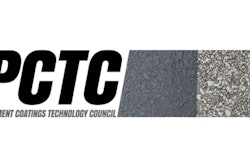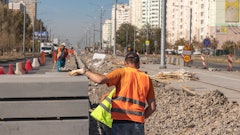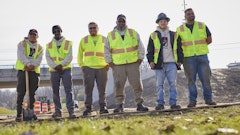On May 16, PCTC filed a Motion for Summary Judgment (MoSJ) in its ongoing Freedom of Information Act (FOIA) lawsuit against the US Geological Survey (USGS). The MoSJ asks to court to find in favor of PCTC, ordering USGS to release all documents requested via FOIA to the PCTC. In explaining why it has not released all the requested documents, including scientific data, the USGS argued that “Providing them [PCTC] with all of our exploratory modeling tests will give them yet another tool to try and confuse the public and discredit our work” and the USGS desire to work “without concern for external criticism.” These are extraordinary arguments for an organization that claims to be a center of scientific excellence to make because the foundation of the scientific method is falsification. That is, attempts to test and, yes, discredit, scientific hypotheses are distinguishing features of science. PCTC’s response to these arguments is summarized in its MoSJ as follows:
The United States Geological Survey (USGS) improperly withheld or redacted documents requested by Pavement Coatings Technology Council (PCTC) pursuant to the Freedom of Information Act (FOIA). Now we know why. USGS was unwilling to subject its scientists to the most basic of all scientific safeguards - external peer review and criticism. USGS, mostly through two scientists, has abandoned its mandate for impartiality and nonadvocacy. USGS scientists have published, disseminated, and promoted studies about the environmental impact of refined tar-based pavement sealer (RTS) to influence and elicit emotional responses from consumers, the media, and lawmakers. USGS scientists have mischaracterized and wrongly presented opinions about RTS as unequivocal fact derived from reliable science and have ignored basic canons of scientific methodology and inquiry, including inviting (or even allowing) real and meaningful peer review by the broader scientific community. [USGS’] argument and rationale for withholding data critically important to PCTC is inherently unscientific. The scientific method is designed to attempt to disprove or falsify hypotheses. If repeated attempts to reproduce or verify the work support the hypothesis, then it is strengthened. If it cannot be reproduced, then that alone is sufficient to discredit the hypothesis. By withholding this information from PCTC in the name of "confusion prevention/discredit fear," … USGS [has] short-circuited the scientific method and prevented PCTC from attempting to replicate and reproduce [USGS’] work.
Instead, USGS has opposed, obstructed, and delayed PCTC and the scientific community from reviewing, testing, and raising questions about the data and models they purportedly relied upon to reach various conclusions -, apparently (as demonstrated in the above quotations) to avoid "external criticisms" - i.e., criticisms from the scientific community. In effect, USGS has prevented PCTC and the scientific community from critiquing, refining, understanding, expanding, questioning or rejecting their conclusions.
PCTC submitted a FOIA request to USGS for documents related to USGS's research on RTS. PCTC expected USGS would produce the requested documents, particularly the underlying data and models from their research. PCTC expected USGS would embrace the opportunity for the scientific community to critique or participate in USGS's research on RTS. Without justifiable explanation, USGS has delayed providing a complete response for [over] five years. During that time, USGS scientists, citing their own untested research, have continued to advocate for the ban of RTS and have spread misleading information about the environmental impact of RTS and the potential adverse impact of RTS on human health.
PCTC's objective is modest. PCTC seeks to review and test USGS's conclusions and methodology or to allow the scientific community to be able to do so. This requires USGS to produce data and models.
USGS has the burden to prove the withheld documents are protected by a FOIA exemption. USGS cannot meet this burden. PCTC's motion for summary judgment should be granted. USGS should be ordered to release the withheld and redacted documents without further delay.
PCTC also filed its Response to USGS’s previously filed Motion for Summary Judgment. PCTC is hopeful that its FOIA lawsuit against the USGS will be decided before the end of 2016.











![Lee Boy Facility 2025 17 Use[16]](https://img.forconstructionpros.com/mindful/acbm/workspaces/default/uploads/2025/09/leeboy-facility-2025-17-use16.AbONDzEzbV.jpg?ar=16%3A9&auto=format%2Ccompress&fit=crop&h=135&q=70&w=240)








